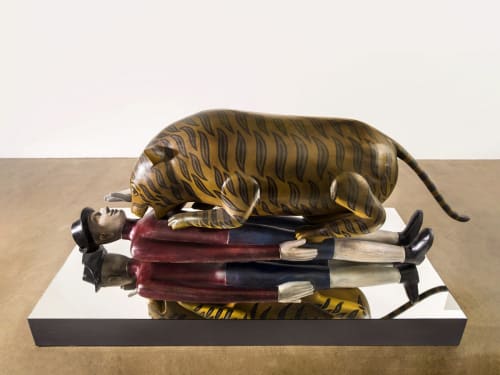The exhibition title – Penal Colony – drawn from Franz Kafka’s short story titled ‘In the Penal Colony’ sets the stage for a set of layered references and critiques on colonization and its impacts, and the underlying characteristic of leisure/pleasure in the colonial project. In Kafka’s story the central theme is of a mechanical instrument designed to kill a man (the Condemned) after a prolonged 12 hour period of torture. Using Kafka’s story as the background Madhusudhanan relooks at the ‘Wagon Tragedy’, the 1921 massacre in Kerala under the British rule, which saw the brutal arrest and death of 70 rebels/prisoners.
Madhusudhanan’s journey back into this moment in history makes a case for art’s capacity to revisit, examine, and comprehend moments in history as a means to recognizing and grasping the context of violence and turmoil that is occurring globally today. The incident from the night of November 19, 1921, when the British brutally arrested and confined a 100 people into a small train wagon, leading to the death of 70 people, is not just the subject matter here but a way the artist offers to recalibrate our understanding of violence and the many guises it takes. Through the use of myriad motifs the artist offers a nuanced understanding of violence - as a complex set of behaviors and acts, carefully constructed and justified, and sometimes even enjoyed as entertainment. The reference to Kafka’s execution device further hints at the role of machines and technology in these incessant acts of violence and death.
Alongside the ‘Wagon Tragedy’ the artist also makes reference to Tipu Sultan’s Tiger, a mechanical toy and musical instrument that shows a tiger tearing into a life-sized European man. Death here is a slow and amusing process, an instrument of entertainment and leisure for the civilized man.

